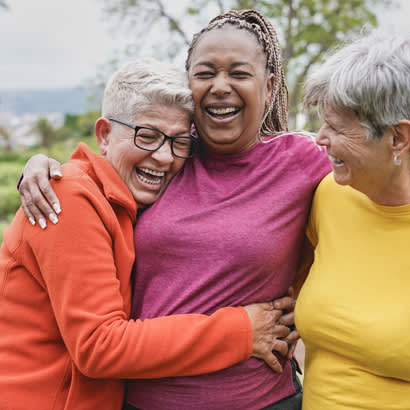
Park and recreation professionals and their agencies play a vital role in promoting a healthy and cohesive community. This includes providing programs to members of all ages and diverse backgrounds. In May 2024, the NRPA Research team released the Supporting Older Adults Through Parks and Recreation report based on survey data from nearly 300 parks and recreation professionals. The report sheds light on the activities, partnerships, challenges and successes in older adult programming in parks and recreation and will be the focus of this blog post.
There are many benefits for older adults by participating in park and recreation programs. Ninety-five percent of agencies identified promoting social connection/addressing social isolation as a top benefit, followed by promoting physical activity and providing a safe space for older adults to gather. Additionally, more than half reported their activities offer affordable and accessible opportunities for older adults, promote mental health and connect them with enrichment and learning opportunities.
Park and recreation agencies tailor their programs for older adults to meet the unique needs of their residents. An impressive 89 percent of agencies offer exercise classes, and 86 percent have sports and games dedicated to those over the age of 55. Moreover, 73 percent provide enriching arts and crafts classes and volunteer opportunities. Other exciting activities for older adults include festivals, field trips, cultural enrichment opportunities and social clubs.
The programs for older adults not only contribute to overall health and fitness but also foster a sense of community and belonging. Thirty percent of agencies have intergenerational programming that allows older adults to connect with younger individuals in the community. This relationship increases awareness and understanding between the two groups. Some of the intergenerational programming offered are reading groups, arts and crafts, gardening, food and cooking classes and mentoring opportunities.
Parks and recreation is essential, as 27 percent of surveyed agencies are the leading providers of services and programming for older adults in their community. To successfully support older adults, park and recreation professionals require a variety of venues to organize their activities. At least half of park and recreation agencies deliver older adult programming at recreation centers, outdoor spaces, senior centers and community centers.
Partnering with other local organizations is an essential factor in the success of programming for older adults. The most common partnerships include senior living housing providers (74 percent), area-wide agencies on aging (71 percent) and libraries (70 percent). Other significant providers are faith-based organizations, older adult-targeted non-profits, local hospitals/health care providers and cultural/social organizations.
The Supporting Older Adults Through Parks and Recreation report details the value of park and recreation agencies as crucial providers of activities and services for older adults throughout the United States. Serving as community leaders, these agencies are dedicated to offering innovative programs and expanding their offerings to promote the well-being of older individuals. Stay tuned for the next blog post where I will discuss the impact of COVID-19 on older adult’s participation in parks and recreation events and the resilience found among many agencies and programs post-pandemic.
Allie Ziegler (she/her) is a research assistant at NRPA.


